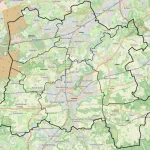UPD2 BPI Use UK High Court to Force ISPs into Blocking 3 Internet Piracy Sites
As anticipated the British Phonographic Industry (BPI), which represents much of the UK music industry, will today ask the High Court to force six of the country’s biggest broadband ISPs into blocking a further three websites that are accused of facilitating internet piracy (copyright infringement).
The BPI warned BT (PlusNet), Virgin Media, Sky Broadband, O2 (BE Broadband), TalkTalk and EE last October 2012 that it would seek a court ordered injunction under Section 97A of the Copyright, Designs and Patents Act to have the sites blocked if they didn’t do the work voluntarily (here). The providers said they would act but only upon receipt of a court order.
Advertisement
The same tactic was used to get The Pirate Bay and Newzbin2 blocked during similar test cases between 2011 and 2012. The next three sites to be targeted by this measure are Fenopy, H33t and Kickass Torrents.
In addition the existing evidence suggests that another three sites may follow after this lot have gone through (here) and as a result the Open Rights Group (ORG) has started taking donations so that it can develop the capability to intervene in future cases.
Jabed Tarapdar, Open Rights Group, said:
“Website blocking is an extreme response. There are growing fears this precedent will make it too easy and quick to block sites. Time needs to be taken to consider the legitimate use of the sites.
These court hearings between a judge, ISPs and right holders do not sufficiently represent the needs of the user as their voice is not included during the hearing. The Open Rights Group (ORG) will not intervene in this case. However, due to the lack of user rights represented in this case, ORG are more likely to do so in the future.
To ensure user rights are adequately represented in future cases ORG are asking for contributions and are also advertising for a Legal Officer.”
Critics often point out that such blocks don’t prevent those who actively seek such sites because ISPs do not have any real control over content that exists on remote servers (the internet) and thus any blocks are usually only skin deep and easy to circumvent (VPN, Proxy Servers etc.). On the other hand such methods are arguably more acceptable than forcibly disconnecting individual users or possibly even whole families and businesses from the online world.
UPDATE 28th Feb 2013
Advertisement
As widely expected the High Court has today ruled in favour of the BPI and issued a court order to block the websites. The full public ruling has yet to be published but the detail will probably mirror that of the TPB and Newzbin2 cases before it.
Internet providers tend to take between two weeks and several months to impose related blocks, depending upon circumstance and or the need for any additional hearings.
UPDATE 28th Feb 2013 – 12:44pm
The Open Rights Group has just published the relevant court document, get it here (PDF).
Advertisement
Mark is a professional technology writer, IT consultant and computer engineer from Dorset (England), he also founded ISPreview in 1999 and enjoys analysing the latest telecoms and broadband developments. Find me on X (Twitter), Mastodon, Facebook, BlueSky, Threads.net and Linkedin.
« EE UK Home Broadband ISP Subscribers See Sharp Fall to 693000

















































Comments are closed